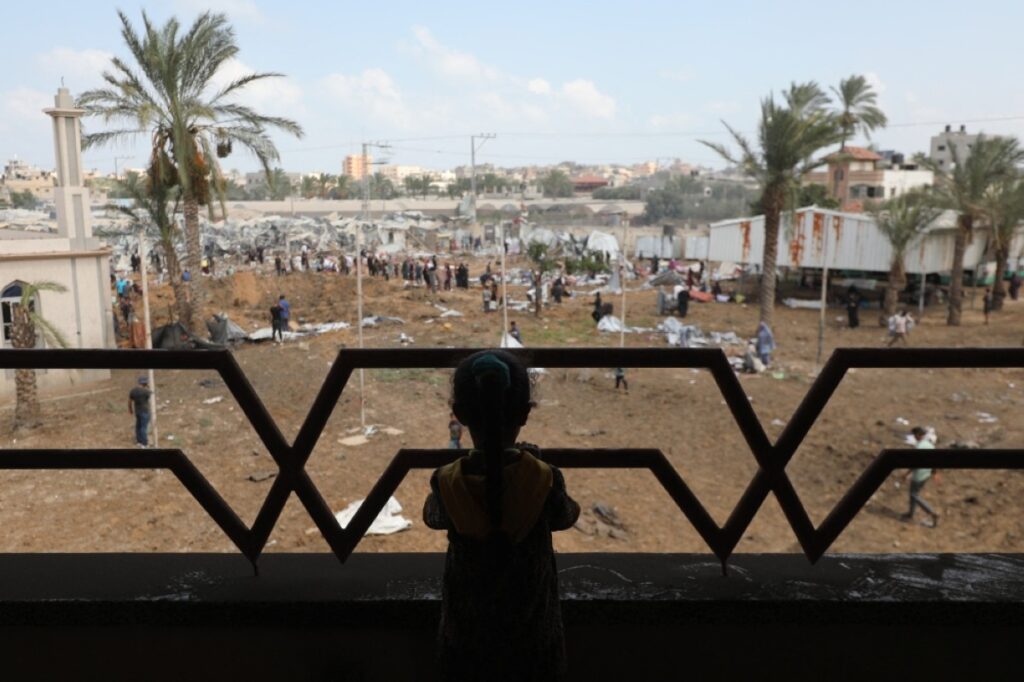KUWAIT: As the humanitarian situation in Gaza deteriorates, Kuwaiti organizations have mobilized emergency aid, despite hurdles placed by the Zionist entity.
Kuwait’s Al-Rahma International Society has been planning its next steps to meet Gaza’s urgent needs. Dr Waleed Al-Anjari, head of Al-Rahma’s Palestine Office, stressed the importance of immediate relief in an interview with Kuwait TV last week: “Families in Gaza are in urgent need of clean water, basic food supplies, temporary shelter, and medicines.”
3,000 tents
Al-Rahma has pre-positioned 3,000 tents in Al-Arish, Egypt. Prepared in Pakistan, these tents can be sent into Gaza as soon as access becomes possible.
“These tents will contribute to easing the suffering of our people in Gaza, who have lost their homes or been displaced,” Dr Al-Anjari said, adding that the tents will enter Gaza as soon as the opportunity arises.
Al-Rahma is also prioritizing the repair of damaged wells. “Many wells were targeted, but they can be restored to provide life-saving water,” he said, noting that shelter and water are the two main focus areas for the next phase of relief. He expressed hope that a ceasefire would allow the resumption of aid deliveries.
Al-Rahma has also participated in coordinated efforts with the Kuwait Red Crescent Society (KRCS) to send food supplies to the strip. The shipments, which carried tons of food procured from the Kuwait Flour Mills, have arrived in Al-Arish, Egypt. From there, supplies will enter Gaza as soon as access is granted.
Cooperation with Egypt
Al-Anjari praised the collaborative effort: “The authorities in Kuwait took a very prudent step by sourcing the food supplies from the Kuwaiti Mills Company. This ensures quality of the food and a long shelf life, so the supplies can withstand delays and closures until, God willing, they reach Gaza.”
KRCS General Manager Fawaz Al-Mazrouei explained the careful coordination required in an interview with Kuwait TV: “Items sent are selected in collaboration with the Palestinian Red Crescent, depending on what’s allowed entry.” He added that the Egyptian Red Crescent will oversee the entry of aid and distribution to ensure the safety of Kuwait Red Crescent volunteers. Distribution will be fully documented, including photographs.
Al-Mazrouei emphasized that the humanitarian effort is ongoing, with no set end date. “The number of donors has been very large, and the generosity has been overwhelming. The aid will keep coming until the people of Gaza have received what they need.”
Challenges in delivery
But delivering aid is far from straightforward. AFP reports that at the Rafah crossing, hundreds of trucks carrying essential supplies have been held up in the Egyptian desert for days, with only a small number allowed through.
UN officials, Egyptian Red Crescent volunteers, and aid workers told AFP that shipments are frequently rejected for minor packaging flaws, “dual-use” concerns, or seemingly arbitrary reasons—even when fully approved by UN agencies. Supplies including intensive care gurneys, oxygen tanks, and basic medical equipment have been delayed for weeks or months.
“It’s like they’re rejecting anything that can give some semblance of humanity,” one UN staffer told AFP. Egyptian authorities say only about a third of needed aid actually enters Gaza daily. A Reuters reporter saw rows of white oxygen tanks, as well as wheelchairs, car tires and cartons labelled as containing generators and first-aid kits and with logos of aid groups from countries such as Luxembourg and Kuwait, among others. Reuters was not able to verify when the items at the Red Crescent site were turned back or on what grounds.
International aid organizations also highlight bottlenecks for shelter materials. Reuters reported that even after the Zionist entity announced that tents and other materials would be allowed through the Karem Abu Salem Crossing, humanitarian groups such as the UN, CARE International, ShelterBox, and the Norwegian Refugee Council still faced bureaucratic obstacles or lacked authorization altogether. Over 1.3 million Gazans remain without proper shelter, many forced to live in makeshift tents or rubble.
Orphan care remains a pressing concern. “Before the latest conflict, we were supporting over 6,000 children. Now, the number has surged to more than 60,000,” Dr Al-Anjari said, underscoring the need for sponsorship programs.
He lamented the destruction of the Kuwait Specialized Hospital in Gaza by the Zionist entity.
“We laid the foundation for this hospital in one of the poorest areas of Gaza, in the south of the Strip. Over the years, it expanded, adding more departments, equipment, and facilities, and we witnessed firsthand the valuable role that the Kuwait Specialized Hospital played.”
While challenges remain at the crossings, Kuwaiti aid groups remain committed to providing relief. “God willing, a temporary ceasefire will give people a chance to catch their breath and for aid to reach Gaza,” said Al-Anjari.

